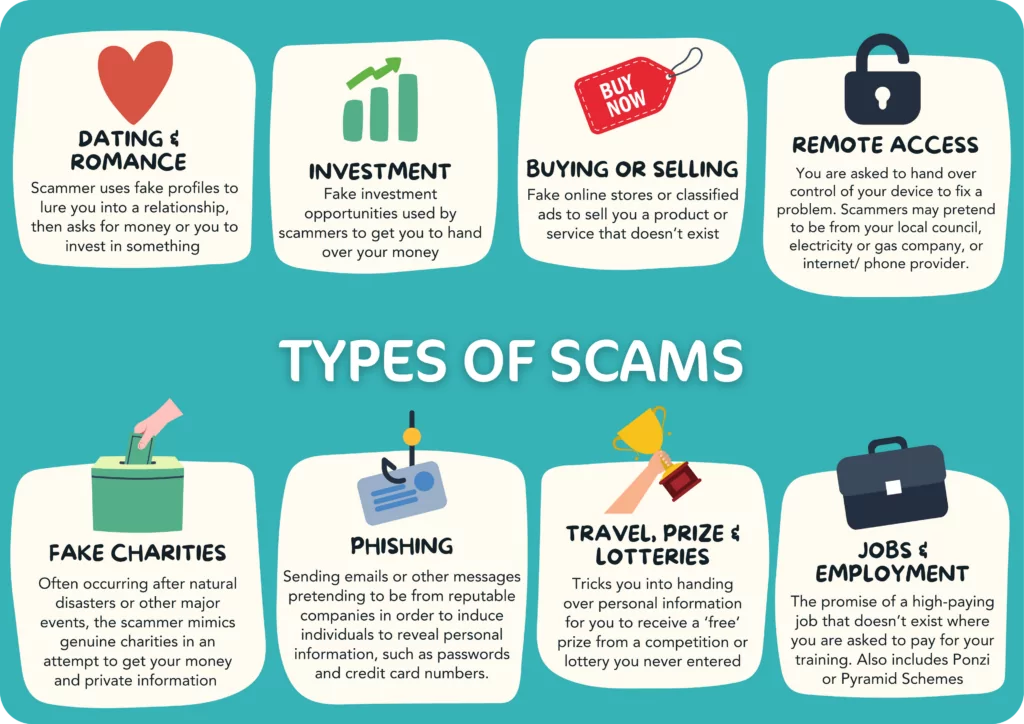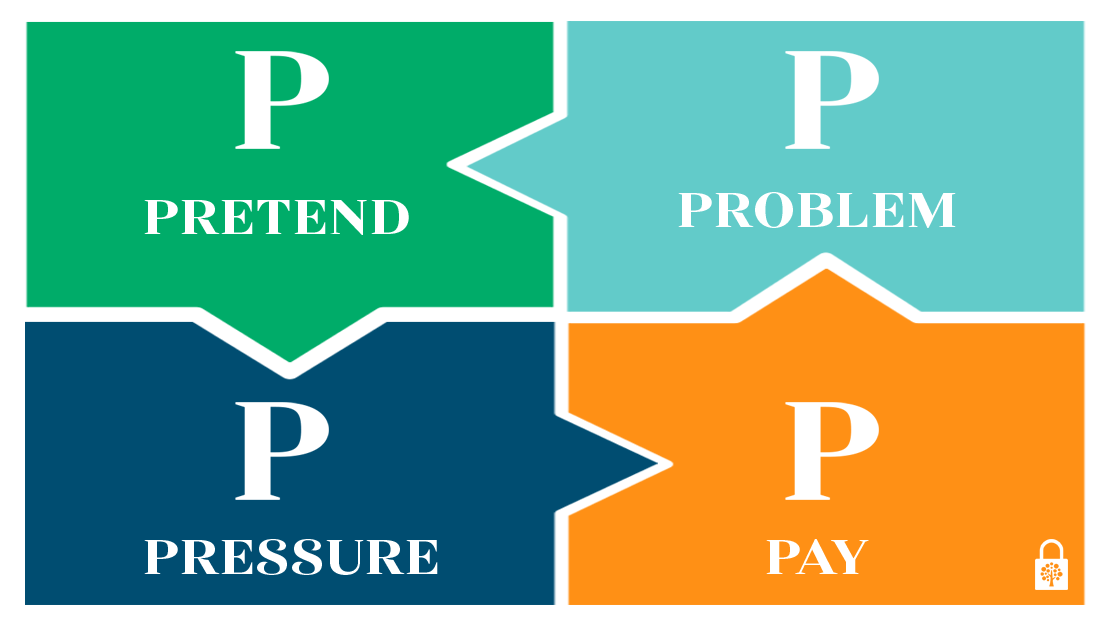Scammers are constantly developing new ways to deceive individuals and businesses, leading to significant financial losses and emotional distress. Being aware of common scam types can help you stay vigilant and protect yourself. In this article, we will explore various scams, their warning signs, and how to safeguard against them.
1. Phishing Scams
Phishing is one of the most widespread cyber scams, where fraudsters send fake emails, messages, or websites to steal sensitive information like passwords and credit card details.
How It Works:
- You receive an email or message that appears to be from a trusted entity (e.g., bank, social media platform, or government agency).
- The message contains an urgent request, asking you to verify your account or make a payment.
- Clicking on the link directs you to a fake website designed to steal your credentials.
How to Protect Yourself:
- Verify the sender’s email address before clicking any links.
- Never enter personal information on unfamiliar websites.
- Enable two-factor authentication (2FA) for added security.
2. Investment Scams
Investment scams promise high returns with little or no risk, often luring victims into fraudulent schemes.
Common Signs of an Investment Scam:
- Promises of guaranteed high returns with minimal risk.
- Pressure to invest quickly before an “exclusive” opportunity expires.
- Lack of proper licensing or registration with financial authorities.
How to Stay Safe:
- Research the company and check its credentials with regulatory bodies.
- Avoid investing in opportunities that seem too good to be true.
- Seek advice from a financial professional before committing funds.
3. Romance Scams
Romance scammers create fake online personas to form emotional connections and manipulate victims into sending money.
How Romance Scams Work:
- The scammer builds trust over time through online conversations.
- They claim to be in a difficult situation, such as needing medical help or travel expenses.
- Once the victim sends money, the scammer disappears or continues to ask for more.
Preventive Measures:
- Be cautious with individuals who avoid video calls or in-person meetings.
- Never send money or share personal details with someone you haven’t met in real life.
- Conduct a reverse image search to check if their profile pictures are stolen.
4. Tech Support Scams
Fraudsters pose as tech support agents, convincing victims that their computers are infected and charging them for unnecessary services.
Red Flags of Tech Support Scams:
- Unexpected pop-ups warning of viruses and urging you to call a number.
- Unsolicited calls from someone claiming to be from Microsoft, Apple, or another tech company.
- Requests for remote access to your computer.
How to Protect Yourself:
- Never call numbers provided in pop-up warnings.
- Use official support channels from your device manufacturer.
- Keep your software and security programs updated.
5. Lottery and Prize Scams
These scams trick victims into believing they have won a lottery or prize, but they must pay a fee to claim it.
Warning Signs:
- You receive a message about winning a contest you never entered.
- You are asked to pay taxes or fees before receiving your winnings.
- The message is poorly written and urges immediate action.
What to Do:
- Ignore and delete suspicious messages.
- Never send money to claim a prize.
- Report the scam to consumer protection agencies.
6. Cryptocurrency Scams
As cryptocurrency gains popularity, scammers use fake investment opportunities and impersonate legitimate crypto platforms to steal money.
Common Crypto Scams:
- Fake investment platforms promising high returns.
- Phishing emails asking for wallet credentials.
- “Giveaway scams” where fraudsters impersonate celebrities or influencers.
How to Protect Yourself:
- Use reputable exchanges and wallets.
- Avoid sharing your private keys or seed phrases.
- Research any crypto investment before committing funds.
7. Job Scams
Scammers post fake job listings to steal personal information or trick job seekers into paying upfront for fake training or equipment.
Signs of a Job Scam:
- Job offers that seem too good to be true.
- Requests for payment for training, background checks, or materials.
- Unprofessional communication and vague job descriptions.
How to Stay Safe:
- Verify job postings through official company websites.
- Never pay upfront fees for a job offer.
- Research the company and check for reviews from other job seekers.
Conclusion
Scammers are becoming more sophisticated, but by staying informed and cautious, you can significantly reduce your risk of falling victim. Always verify sources, double-check offers, and report suspicious activities to authorities. If you suspect you’ve been scammed, Loss Aid is here to help with expert guidance on fraud prevention and recovery.




